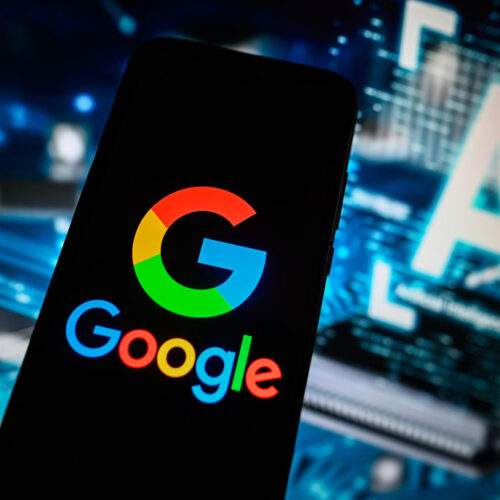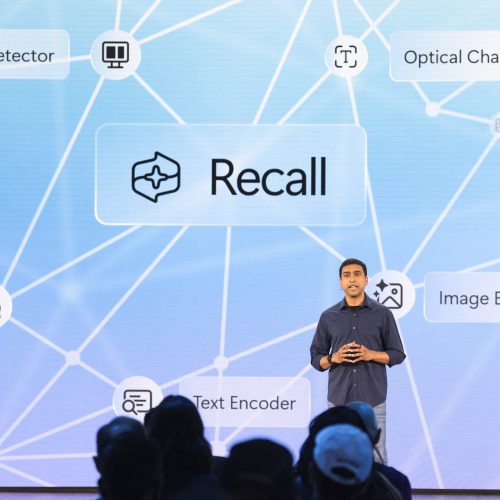Microsoft bet big on its Copilot AI tool. Here's everything to know about Copilot's features, cost, and risks.

Jonathan Raa/NurPhoto
- Copilot is Microsoft's generative AI tool now featured in much of its productivity programs.
- Copilot can draft text, analyze information and data, and suggest ideas.
- Copilot has also been plagued with security issues, and customers have criticized its effectiveness.
The entire tech industry is mired in an AI arms race, and Microsoft bet big on Copilot, its generative artificial intelligence chatbot.
Microsoft released Copilot in 2023, and rapidly rolled it out across various products and softwares. The company markets Copilot as a tool to help users with productivity tasks such as drafting a memo for work, adding to or amending hectic calendars, analyzing a spreadsheet or a few lines of code, or even writing a poem or short story.
By combing the vastness of the internet in fractions of a second to source troves of information and then engaging in machine learning and informed prediction, Copilot can create content; it can analyze, interpret, and explain extant data; and it can create systems for planning and managing many aspects of your life, from work to recreation to hobbies and more.
"We believe Copilot will be the new UI that helps you gain access to the world's knowledge and your organization's knowledge, but most importantly, it will be your agent that helps you act on that knowledge," Microsoft CEO Satya Nadella said during a keynote address at Microsoft's annual Microsoft Ignite business conference in November 2023.
Not long after Copilot's launch, industry experts predicted that for the fiscal year 2024, Copilot would generate billions for the company. However, the AI tool is not without its flaws. Customers and company insiders have criticized Copilot for its ineffectiveness and cost, and IT leaders have questioned its value to their companies; the widespread disappointment in Copilot has raised doubts over its long-term profitability.

Jason Redmond/AFP via Getty Images
What is Microsoft Copilot AI?
Microsoft Copilot is an AI-powered chatbot that relies on large language models (often shorted to LLMs) to help users with productivity and content creation tasks. The more you use it, the more it learns about your interests, preferences, and habits, and the better it tailors itself to serving your needs. It's available for use on Windows, Macs, and both the Apple iOS, and Android mobile platforms.
You can use Microsoft Copilot in many programs that you likely already use, including Microsoft Teams, Microsoft Word, Microsoft Excel, Microsoft PowerPoint, OneNote, Outlook, and more. It can assist you in rapidly creating and editing documents, spreadsheets, presentations, and more, acting both as your content creator and an editor and sort of AI coworker.
The basic version of Microsoft Copilot is free to use on the web, in Windows, with a Mac OS, and with Android and iOS. The free version includes access to GPT-4, GPT-4 Turbo, and GPT-4o during non-peak times. It also allows users to create and edit AI images, use plugins, and more.
However, there is also a paid version of Copilot called Copilot Pro, which offers more advanced features and better access. Copilot Pro includes all the features of the free version, plus priority model access and the ability to use Copilot in Microsoft apps like Word, Excel, PowerPoint, Outlook, and OneNote.
To use Copilot Pro, you need a Microsoft 365 Personal or Family subscription, which costs $6.99 per month for a personal subscription and $9.99 per month for a family subscription, good for up to six users. With Copilot Pro added, the total cost is around $26.99 per month.
Is Microsoft Copilot better than ChatGPT?

Jaque Silva/NurPhoto
In some ways and for some uses, Copilot can be more effective than ChatGPT. Copilot is better for quick, tactical tasks that come about during your workflow, while ChatGPT is more commonly used for broader tasks and conversational AI, like for writing a creative story or rehearsing before a meeting or interview.
Copilot is part of the Microsoft ecosystem and can easily pull information from across Microsoft applications, which can be helpful, and it can also reply to questions with visual responses, such as photos and images. Also, unlike ChatGPT, which doesn't provide sources for its responses, Copilot does, making cross-referencing and fact-checking easier. That said, the paid version of ChatGPT is only $20 a month, so it's $7 cheaper than Copilot Pro.
What are the risks of using Microsoft Copilot?
Using Microsoft Copilot can pose several risks, including data leakage. Customers have already raised multiple security issues with Copilot, and in some cases delayed deployment over the concerns.
Copilot can generate outputs that include sensitive data, which may be shared with the wrong audience as the AI simply doesn't know better. For example, while you use Microsoft Teams, Copilot could summarize conversations and record action items against your better judgement, which could accidentally reveal private information.
There is also the all-too-common human problem of over-reliance. As Copilot and other AI tools become increasingly integrated into daily life, users may unknowingly rely on it more, which could impact investment and strategic decisions, how they write and express themselves, and frankly how much creative and critical thinking they do.





